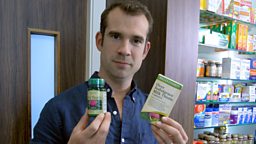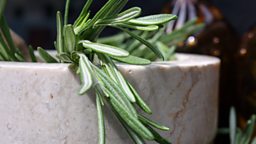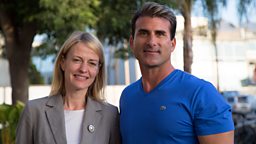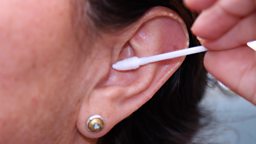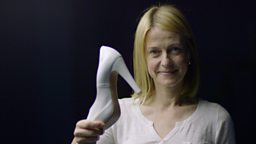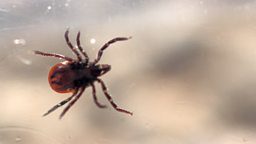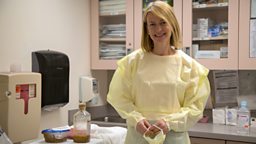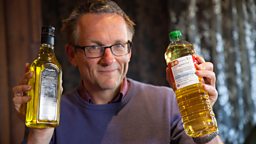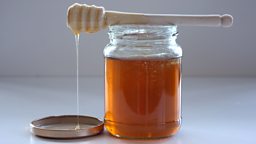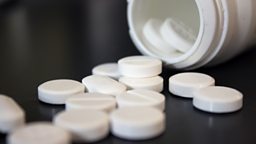Are my wash products damaging my skin?
We spent a staggering one and a half billion pounds on shampoo, conditioner and bath and shower products in the UK last year. But what is the real cost of using these products on our skin? With eczema and dermatitis cases rising, should we be worried about the products that we use to clean our skin? Dr Chris van Tulleken embarked on a study with the University of Bath to find out what the chemicals present in our personal hygiene and skin care products are doing to our skin.
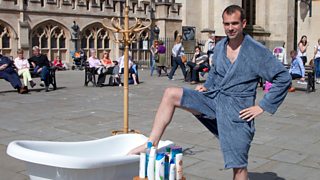
These days many of us, two or three times a day strip the oils, grease and dirt from our skin, using shampoos soaps and shower gels.
And then we get out of our baths and our showers and we use, moisturising creams, to replace those oils and greases.
So is it just a never ending cycle of illogicality? Or could it actually be bad for us?
Sodium Lauryl Sulfate
Moisturisers, shampoos and shower gels, like many other cleaning agents we find in our homes, contain detergents. These chemical compounds not only help us remove the grease, oils and dirt from our bodies but they are used to emulsify the components in washing products, which is necessary to stabilise the mixtures and keep them in the form of a cream.
However, Professor Richard Guy at Bath’s Department of Pharmacy and Pharmacology found that Sodium Lauryl Sulphate (SLS), a powerful detergent present in a large number of shampoos and soaps, can cause severe skin irritation and reduce the effectiveness of skin function when left in contact with healthy skin.
Professor Guy’s work follows on from research done at other laboratories which showed that Aqueous Cream BP, an emollient cream until recently commonly used to treat eczema, made the condition worse in many patients with eczema. SLS was identified as the irritant chemical in this product and led to official guidance advising doctors against prescribing Aqueous Cream for the treatment of eczema.
The experiment
We followed this up by testing dilute SLS on the Chris’s skin. Liquid SLS at a concentration lower than that present in most washing products was kept in contact with Chris’s arm for 6 hours every day, for 3 weeks. Professor Guy measured the rate of water loss from his skin before the experiment, and again at the end of the three weeks. The rate of water loss from skin is a reliable measure of the skin’s effectiveness as a barrier, so an increase in water loss indicates skin damage.
At the end of the experiment Professor Guy found that the water loss from Chris’s skin had more than tripled, from 9g of water per square metre of skin per hour at the start of the experiment, to 33 g/m²/hr by the end. He believes that the change in water loss from Chris’s skin was roughly equivalent to being halfway to completely losing the top layer of his skin.
SLS is thought to irritate the skin by disrupting the natural oils that maintain the skin’s integrity. This not only leads to direct damage, but also reduces the skin’s ability to keep out allergens – such as SLS itself – that may trigger reactions such as eczema.
Chris also tested the second stage of our washing routine - moisturiser. We examined the effect of a common moisturiser after soaping his skin and washing it off, compared with washing alone. When the water loss from the two areas of skin was measured, there was no difference. This suggests that in this experiment the moisturiser was of no benefit to his skin. Now, this was not a scientifically rigorous experiment, but it confirms Chris’s suspicion that the use of moisturisers has become habitual only in order to offset the damaging effects of detergents on our skin.
Almost every skin product, including moisturisers, contain some kind of detergent – even if these are not as powerful and damaging as SLS. So, if you’re someone with sensitive skin or if you’re prone to eczema you may find that reducing your exposure to SLS could help. SLS-free skin and hair products are widely available, although no always advertised as such. Look on the ingredients list on the back to check for the presence of sodium lauryl sulfate, or ask for assistance in shops – some keep a list of SLS-free products to aid customers.


